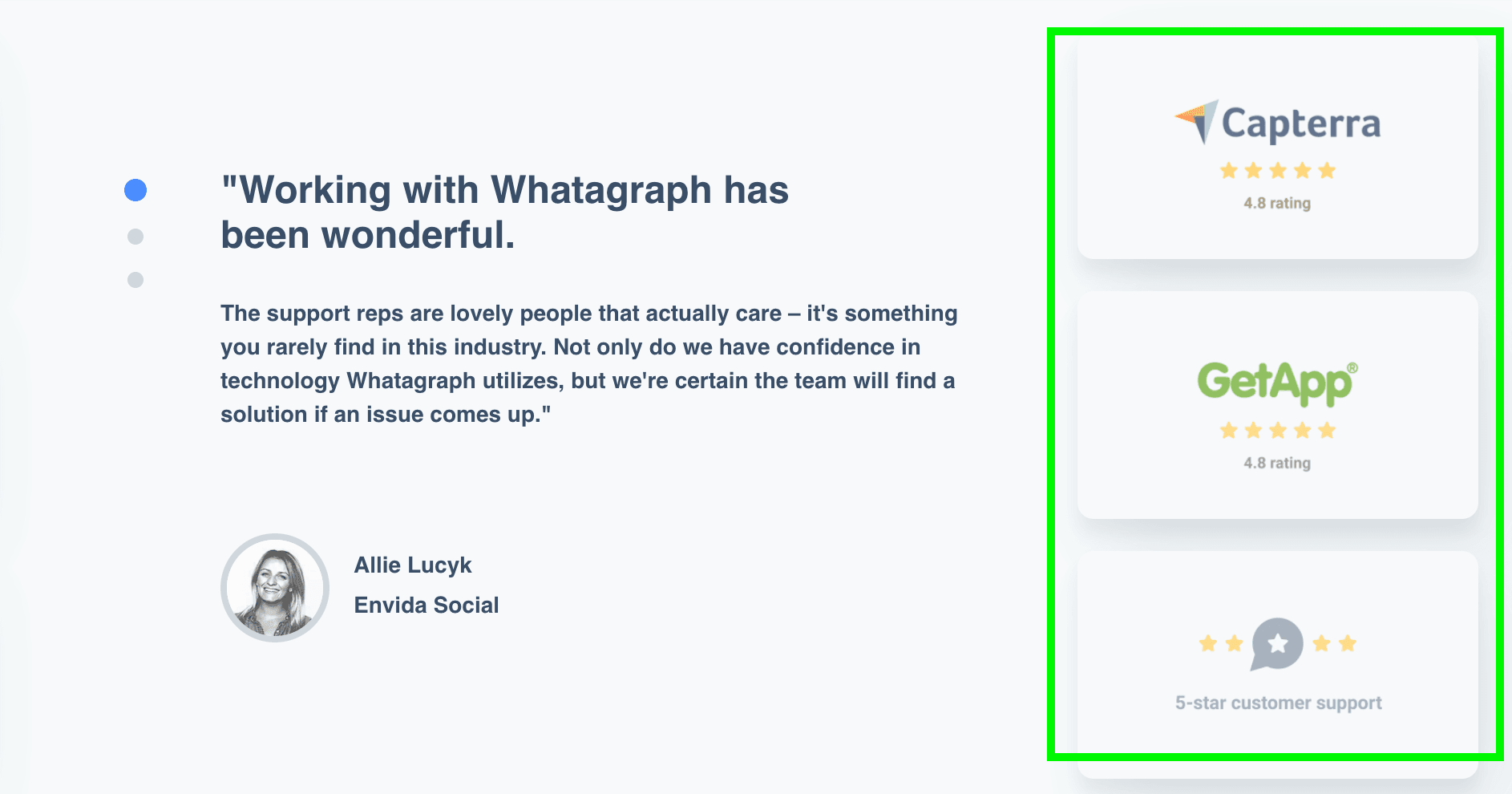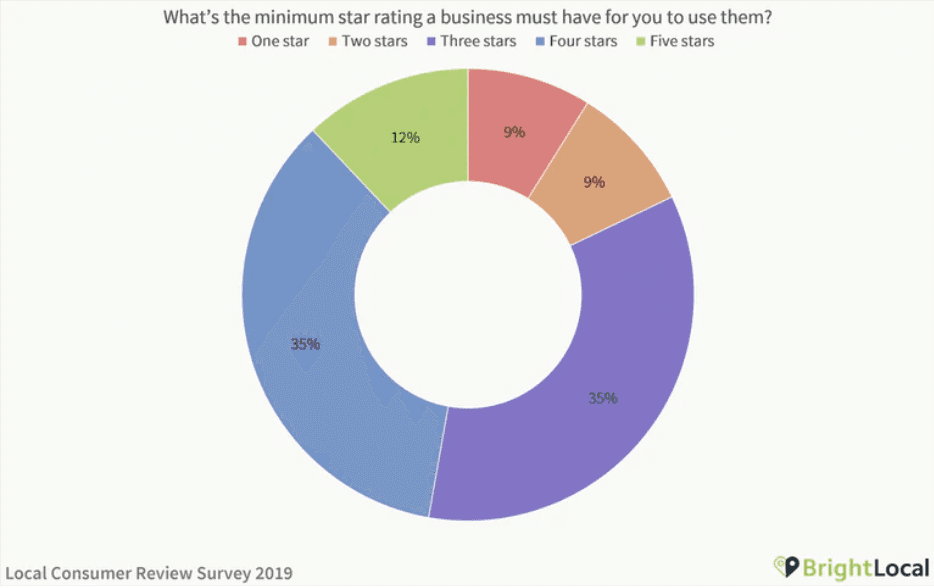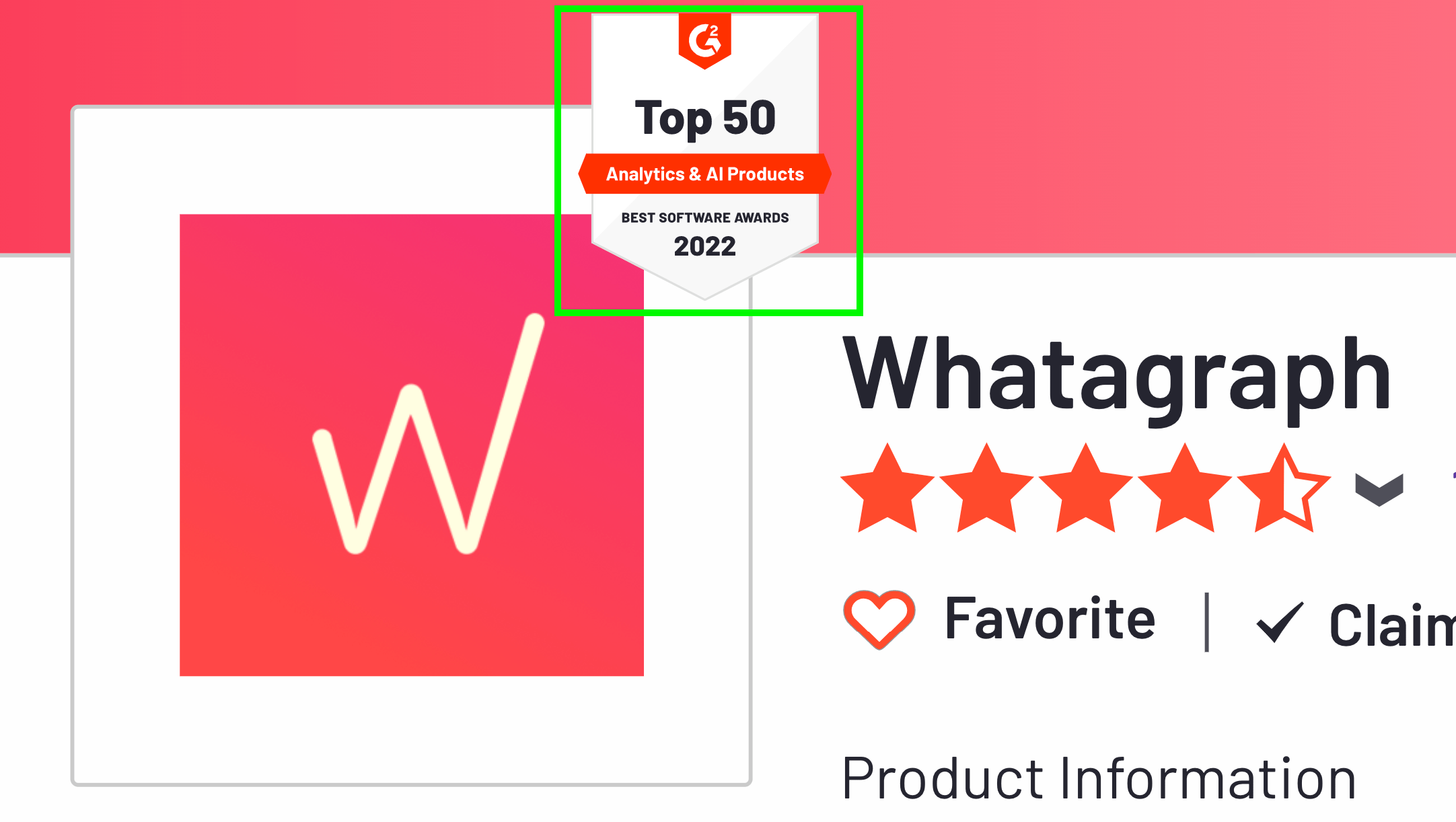10 Clear-Cut Examples of How Social Proof Marketing Plays a Powerful Role in Business
Social proof describes situations in which a person is influenced or persuaded by the actions of others. If they see others do something, they will be more likely to copy those actions. This is because of general trust in the values of others.

Nov 19 2021 ● 8 min read

The term originates from Robert Cialdini’s 1984 book Influence. The book also expresses that people are more likely to copy the actions of people that they can relate to. Those similar to them in some way, or their friends or acquaintances, are likely to have more of an effect.
The concept can be applied easily to business and is important when it comes to learning how to attract customers. Using social proof in marketing can help small businesses to sell more products than they would otherwise.
Below are ten clear-cut examples of social proof marketing at work.
Reviews

The most obvious way in which social proof marketing can shape customer perception is via reviews. Reviews are incredibly important when it comes to staying ahead of the competition. The impression is that if a customer has given a review, and feels passionate enough to share their experience, then the company must be pretty good.
The above example shows a review and photo for a florist in Texas. If someone searching for a florist saw this, they would feel comforted by the positive review and be more likely to choose them over a competitor. It’s been found that people expect an average of 112 reviews to trust a business - and this number is higher for younger consumers.
But don’t just think that any old reviews will do. Positive reviews with a medium to a high number of stars will increase sales.

The above graph reveals that most customers will only choose to buy from companies that have more than three or four stars. This is certainly something to consider when trying to motivate people to leave reviews. Only encourage people who you are sure had a good experience.
Awards

The winning of awards provides social proof that a company is honor-worthy.
The above image illustrates how products can have a sense of authority if they have been approved by a series of people. The tube on its own might elicit a positive reaction due to good design and marketing, but the fact that it has been chosen above others as a standout product is indicative of its quality. It has managed to engage customers, which is a great accomplishment in itself.
As a business, you can add this value to your products if you manage to win some awards. You can increase the chances of winning an award by choosing the awards that you’re interested in and preparing an entry to meet the guidelines.
Celebrity

Well, if Nespresso is good enough for Clooney, it’s good enough for you. Or, so goes the logic behind the marketing campaign starring the Hollywood actor and tequila magnate. It’s a no-brainer that if the public sees that a celebrity, who has all the money, power, and fame in the world, approves of your product, then the product is of high quality.
Celebrity is a great source of promotion but can be extremely expensive. However, there are so many different levels of celebrity, that even a local and less well-known figure could give you the validation that you need. You could contact them via their agent; email, text, or VoIP. If you were to define VoIP, it would be any call made over the Internet, video, or audio - priceless when making countless outbound calls to talent agents in the hope of securing a celebrity booking.
It’s this kind of proof that others (particularly people perceived to be important) enjoy the product that will create the incentive to at least try it!
Friends
People are more likely to buy from a company if they see that their friends shop there. Most people perceive their friends and acquaintances to be wise and logical with purchasing decisions, so if one or more of them have bought from a company, it makes sense that perhaps they should too.
The above image shows how a feature on Facebook which allows users to see which friends like a page could be beneficial for a business. Unintentional social proof marketing like this can encourage sales and increase sell-through rates by improving the faith that a potential customer has in the company.
This could also occur via word-of-mouth discussion about the product. Maybe you’re using a communication platform to discuss it. What is a communication platform? Well, it includes anything from calling to messaging to texting. Maybe you’re over at a friend’s house, and you hear them discussing a new product, or you see it in their home. This raises the profile of the product in one’s mind.
Wisdom of the crowd
Showing that a product or company is popular with a large number of people, via a clever marketing infographic, will create the illusion of desirability. People trust decisions made by big groups, thinking that there must be some wisdom behind the choice. Airbnb’s feature which expresses the popularity of a particular home can encourage people to book it. This is because it makes people think that lots of other people have decided to book it.
People don’t want to miss a trick, and thinking that the place is clearly a gem, they will feel drawn to it, compared to somewhere that they perceive as not being so popular. This is also used on e-commerce sites, which make the potential purchaser aware that there are only one or two left, to increase the chances of a sale.
Referral
If a friend refers you to a product or service, you’re likely to think that they approve of the product and are keen for you to try it. The above graphic, an email from HelloFresh, shows this in action. The marketing even suggests that the recipient is “lucky” that the friend gave them a free box, attempting to increase the value of the product.
In reality, this is not the case, and there’s probably an incentive for the referrer to do so. But they don’t need to know that! This is a great way to use social proof marketing to your advantage. The perception of acquaintance approval encourages people to try the product, thinking that it is a gift from a friend. They will see the company in a good light.
After all, your friends wouldn’t refer you to a terrible product, would they? This kind of thinking encourages people to buy the products that their friends have referred them to.
Testimonials

Like with reviews, testimonials on a company’s website legitimize the business and provide confidence to the potential buyer. If you were a potential customer looking at a website to buy from, you would feel encouraged by the fact that real people have provided a summary of their positive experience and recommended the company.
Securing these testimonials isn’t hard - asking customers about their experience straight after you’ve finished is usually all it takes. You can also use customer experience management tools to ask past clients who you know appreciated the service.
One way to make your testimonials even more impactful is to turn them into video testimonials. Video testimonials allow potential customers to connect with the people providing the testimonials, which helps to create a more personal and genuine experience. Video testimonials can be easily created using VocalVideo, which provides a platform to quickly and easily create video testimonials.
Trust icons
![]()
Signs of trust such as the above will give the business an important boost when it comes to social proof marketing. You’ve been featured on X website or approved by X body, so you must be a relevant company!
These signs are commonly used on company websites nowadays and can help to boost the profile of a company when their products or services could otherwise raise red flags.
Numbers
Using data about the number of customers who have bought from you can highlight that you are a popular company with products worth buying. After all, all those customers can’t be wrong, can they?
McDonald’s’ presentation of the fact that they have served 247 billion customers in the above image is an example of this technique. There’s a saying that there’s safety in numbers, and although it’s not always true, that’s definitely people’s perception. So, businesses often make the most of the trust that others have in the wisdom of the crowd.
This can be added to the front of shops, on websites, and in ads or articles. Try to think outside the box. It could be used on the back of products, vehicles, or the voicemail of your enterprise phone system.
Investment
Investors who see potential in a business or idea will invest large amounts of money, in anything from popcorn packaging to multi-line telephone systems. This is something that is commonly known by consumers, and it, therefore, makes the company appear more trustworthy. Someone’s taken the money and energy to invest in a project - it must be up to big things.
You should make an effort to showcase your affiliation with investors who have good reputations. Consider creating a press release about the investment for journalists to write news articles about it. This will encourage a broad feeling of trust from the public when your business may be new or struggling.
Look at the bigger picture
All of the above are powerful examples of how social proof marketing can make a serious difference to business success. This is something that companies can certainly take advantage of.
However, if it drives the underlying business structure, people will see right through it. Instead, it should be an addition to the existing success of the business, helping the overall progress via small changes.
Published on Nov 19 2021

WRITTEN BY
Indrė Jankutė-CarmaciuIndrė is a copywriter at Whatagraph with extensive experience in search engine optimization and public relations. She holds a degree in International Relations, while her professional background includes different marketing and advertising niches. She manages to merge marketing strategy and public speaking while educating readers on how to automate their businesses.